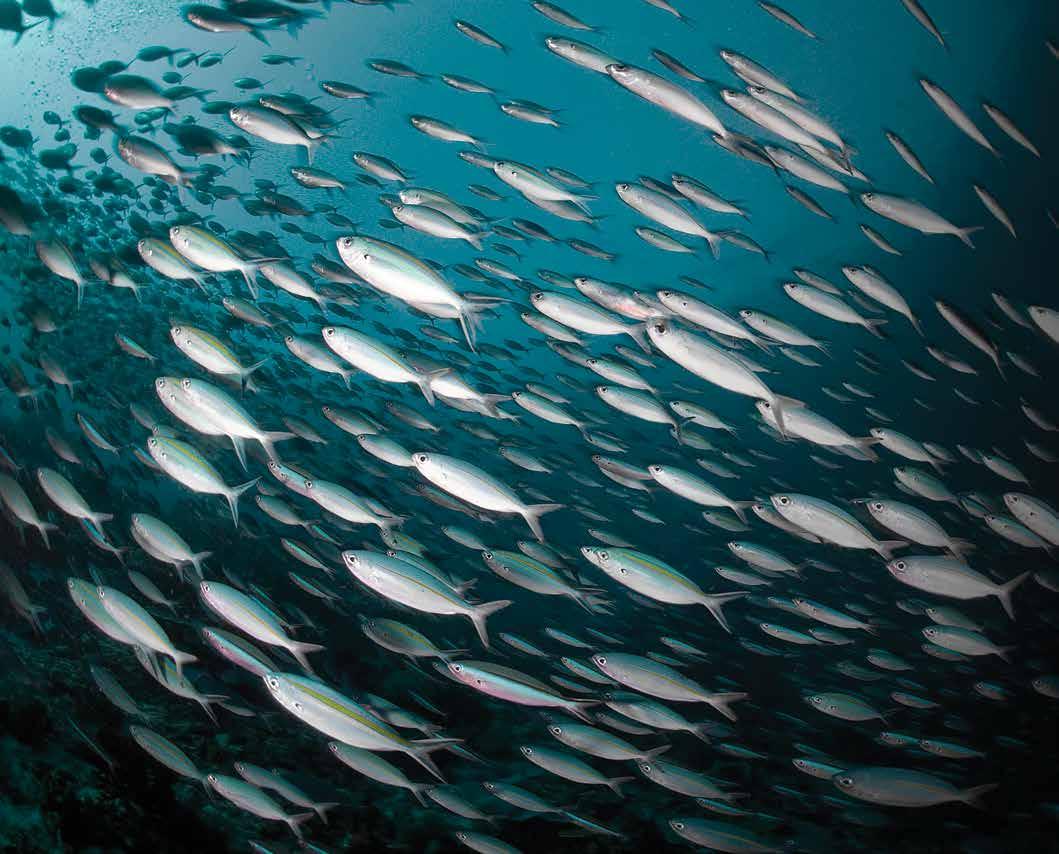
8 minute read
Victories
VICTORIES EUROPEAN UNION ADOPTS A DISCARDS BAN
The European Parliament and the Council of Fisheries Ministers approved a strong EU-wide discards ban, ending the practice of throwing unwanted fish back into the sea dead or dying. EU countries now have an obligation to land all catches subject to catch limits, and in the Mediterranean all catches subject to minimum landing sizes. The discard ban will go into effect in 2015 and must apply to all fisheries by 2019 at the latest.
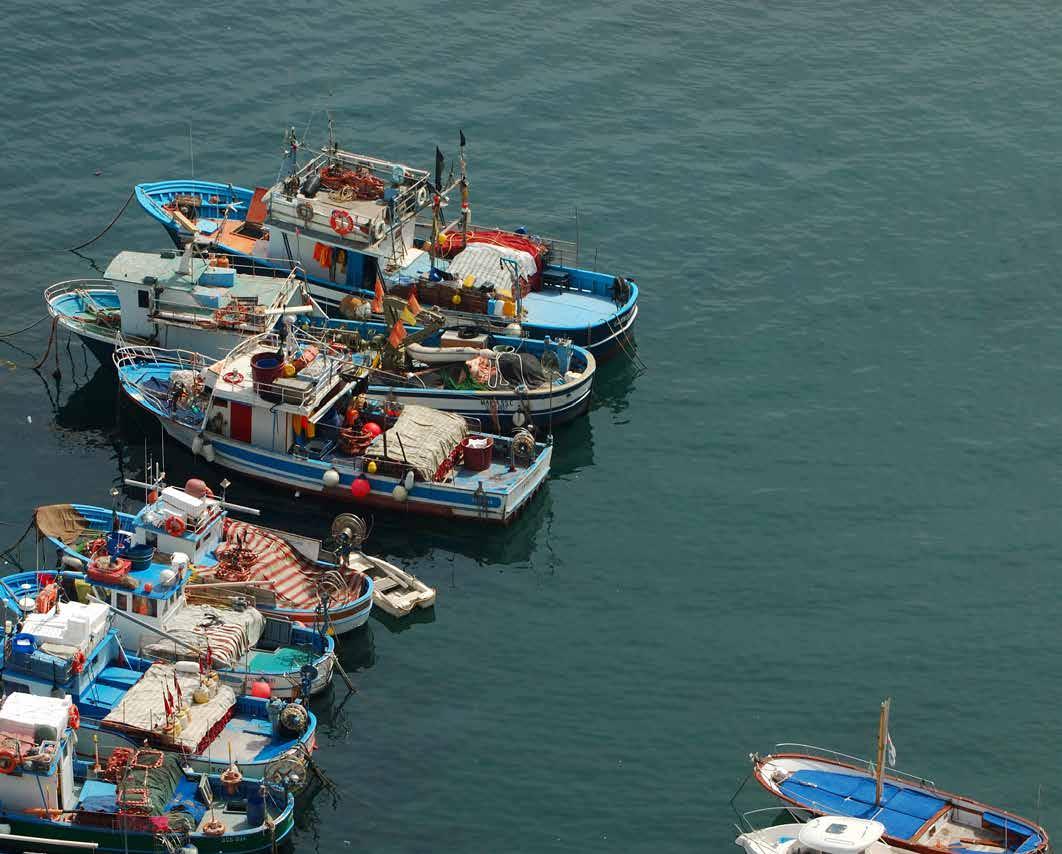
DRAMATIC REBUILDING FOR EUROPEAN FISHERIES
Thanks to years of campaigning by Oceana and others, the European Union is on track to increase the amount of fish caught in the EU by a full 40 percent over current levels by the year 2020. The European Parliament approved major reforms to the Common Fishery Policy, a law that governs all European fisheries. The comprehensive reform policy — including many amendments drafted by Oceana — will require member states to fish all stocks at sustainable levels by 2015.
VICTORIES ARCTIC PROTECTED FROM OIL SPILLS
Oceana and our allies have warned that there is currently no way to drill offshore responsibly in the Arctic’s harsh environment. After Shell’s problematic 2012 exploration attempts — including an incident where its drill rig, the Kulluk, ran aground during a winter storm — Shell announced that it would not attempt to drill exploration wells in the Arctic Ocean in 2013. Oceana continues to urge the U.S. government to put a stop to further offshore Arctic oil exploration until the government can ensure activities will be carried out safely and without harming the environment.

ENDANGERED SPERM WHALES PROTECTED FROM CALIFORNIA DRIFT GILLNETS
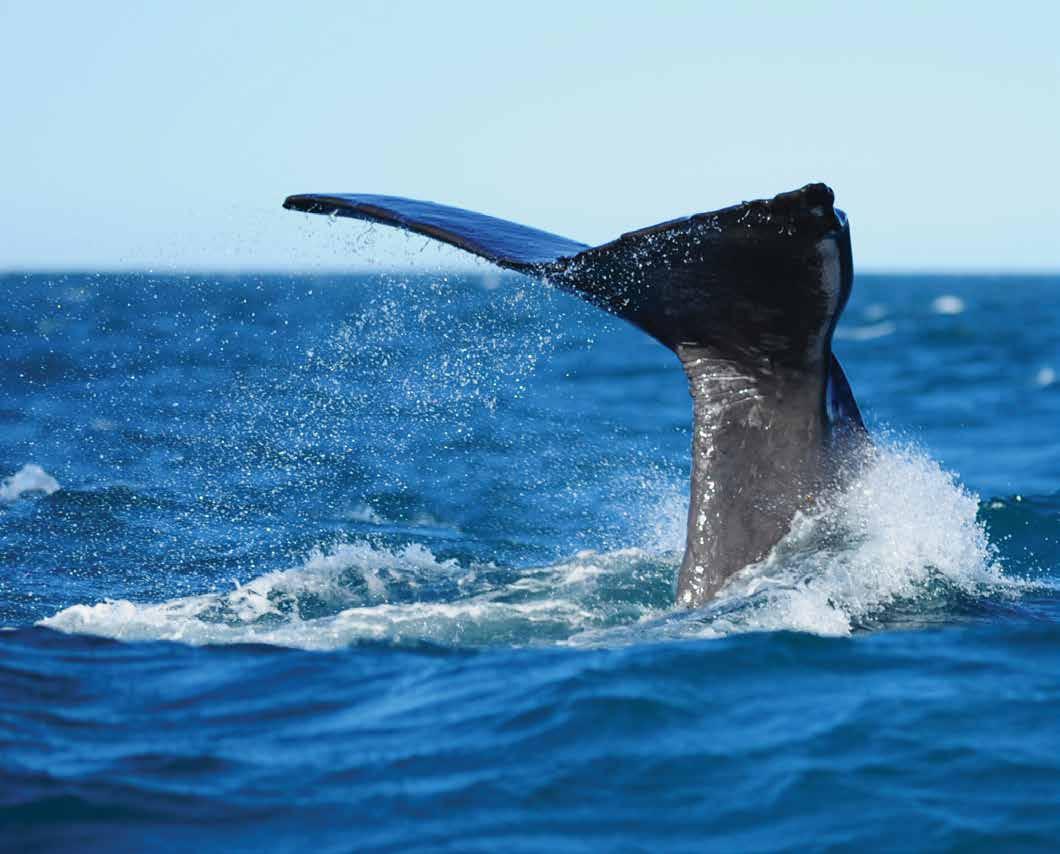
After campaigning by Oceana and our allies, the National Marine Fisheries Service issued emergency regulations that would shut down California’s drift gillnet fishery if fishermen caught an endangered sperm whale. This fishery, which targets swordfish and thresher sharks, kills more whales and dolphins than any other fishery along the U.S. West Coast and has one of the highest bycatch rates in the country. The management rules also required new vessel-monitoring systems and mandated independent observers on all drift gillnet vessels operating in offshore waters deeper than 6,500 feet.
VICTORIES SEISMIC AIRGUNS KEPT OUT OF THE ATLANTIC
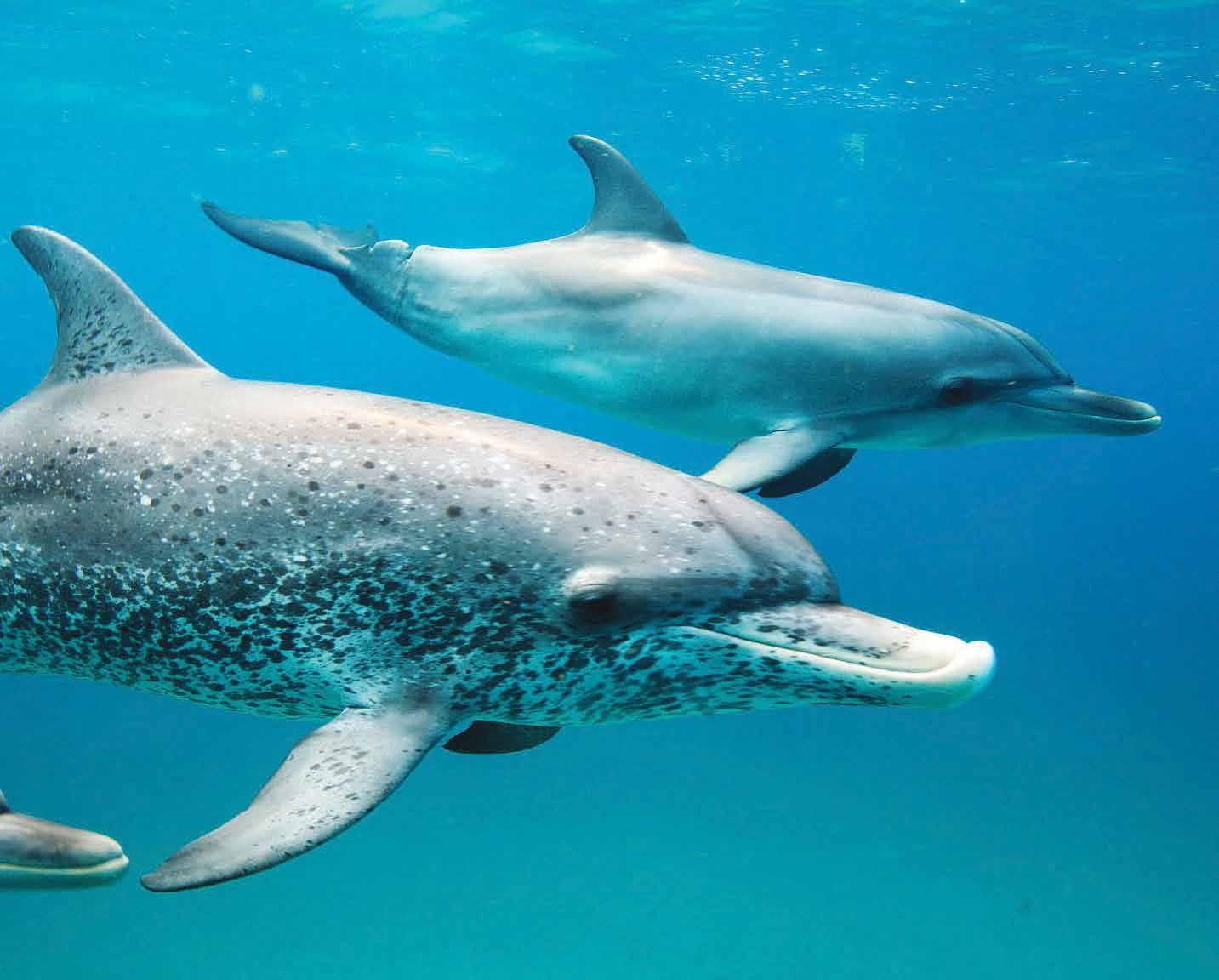
Energy companies want to use seismic airgun technology to search for offshore oil and gas deposits in 300,000 square miles of ocean along the Atlantic coast. The U.S. Department of the Interior postponed a decision on whether to allow airgun use — the third time that Oceana successfully helped delay the decision. The government’s estimates predict that seismic testing would disrupt critical behaviors like feeding, calving, and breeding for many marine creatures. At least 138,000 dolphins and whales will be injured, or possibly killed, if airguns are allowed in the mid-Atlantic. Coastal fisheries in seven states would also be impacted, as airguns can lower catch rates between 40 and 80 percent.
STATE SHARK FIN BANS DEFENDED
Oceana successfully defended state bans outlawing the possession, sale, and trade of shark fins present in eight U.S. states and three territories. In the process of implementing the federal Shark Conservation Act, the National Oceanic and Atmospheric Administration (NOAA) challenged the state shark fins bans by stating that federal law could preempt, or overrule, state shark fin bans. Scientists estimate that 100 million sharks are killed each year mostly for their fins, and these bans protect sharks by closing the market for fins. Oceana launched a public awareness campaign, including running high-visibility Metro ads at stations near NOAA’s offices, urging them to side with sharks and not shark finners. This campaign resulted in a victory in early 2014, when NOAA publicly withdrew its pre-emption challenge in California and indicated its satisfaction with the state laws in Washington and Maryland.
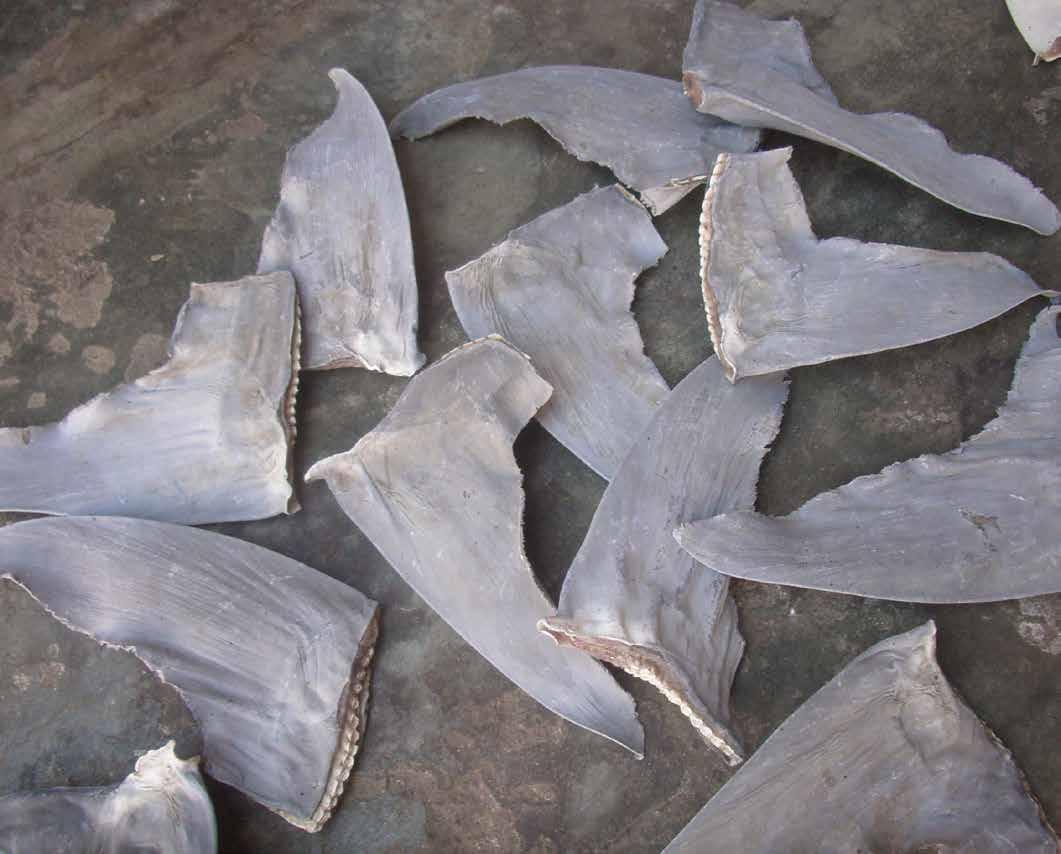
VICTORIES OFFSHORE DRILLING HALTED IN BELIZE
Belize’s Supreme Court declared that all offshore oil contracts issued by the Government of Belize were null and void, a major milestone in Oceana’s work to protect the Mesoamerican Reef — the second largest barrier reef in the world — from offshore oil drilling. The Court’s decision was in response to a lawsuit brought by Oceana and other organizations. In 2012, Oceana also organized the nation’s first ever “People’s Referendum” in which 8 percent of Belizeans — more than 29,000 people — cast their votes, and 94 percent voted against offshore exploration and drilling.
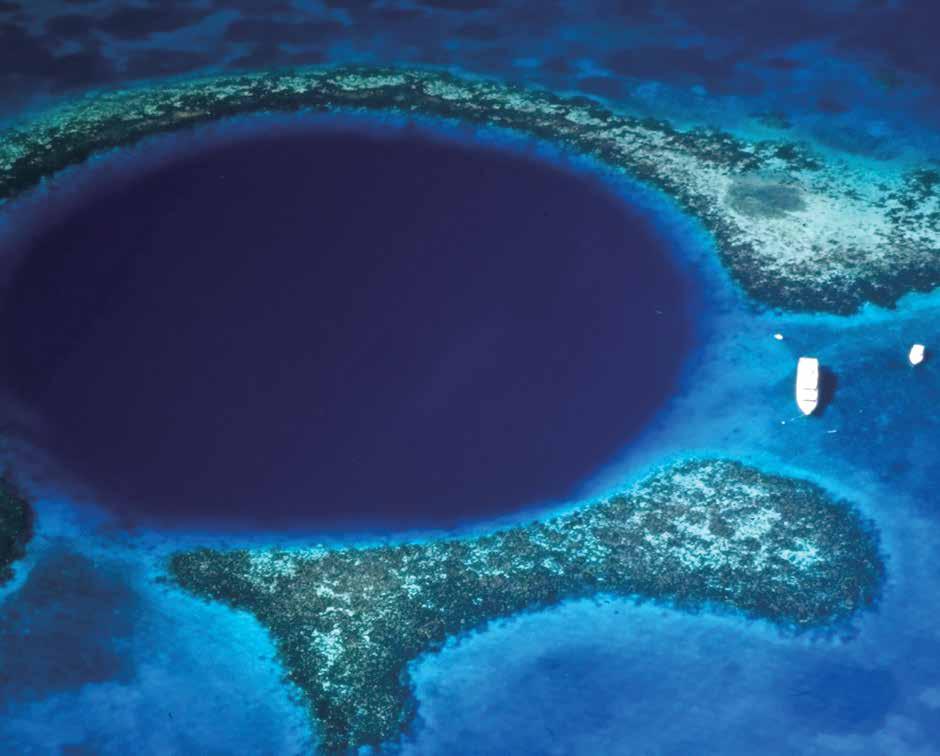
CHILE ESTABLISHES SCIENCE-BASED FISHING QUOTAS
Chile is on track to dramatically rebuild its fisheries, thanks to new science-based fishing quotas for important species, including common hake, anchoveta, sardines, and jack mackerel, all of which are overfished. Following a 2013 reform to the Chilean Fisheries Law, the government reduced the quota for common hake by 55 percent, for anchoveta by 65 percent in specific regions, and for sardines by 29 percent in specific regions. The only increased quota was for the jack mackerel fishery, which is recovering after previous quota reductions. Reducing quotas will allow these seriously overfished species time to recover and rebuild, to the benefit of fishermen and ocean health.
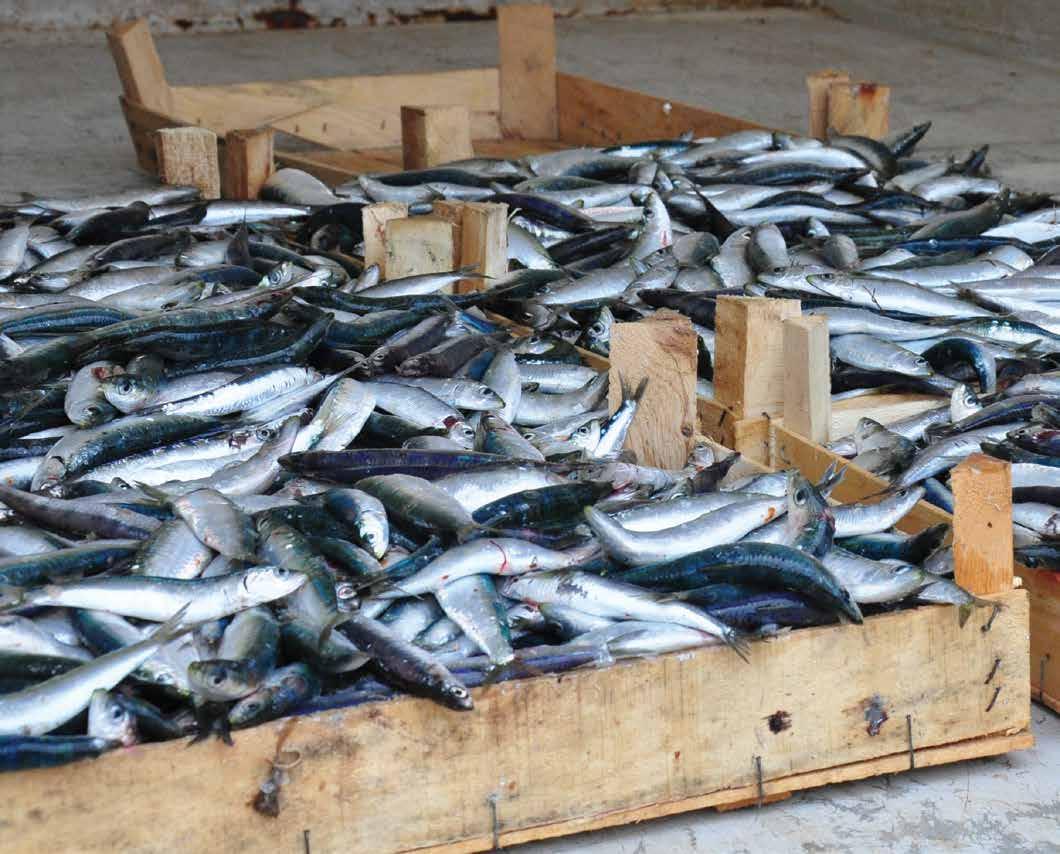
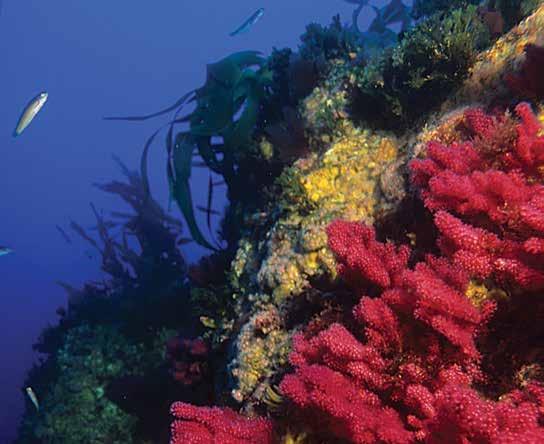
ADDITIONAL VICTORIES
PROTECTIONS ADVANCE FOR CALIFORNIA GREAT WHITE SHARKS: After Oceana and our allies submitted a California Endangered Species Act (ESA) listing petition, California awarded the genetically-unique population of great whites found off the U.S. West Coast ‘candidacy’ status under the ESA. The state will conduct a one-year review of the population and consider management measures that can reduce bycatch of white sharks.
PARTIAL TRAWLING BAN IN SPAIN’S BALEARIC ISLANDS: The Spanish government issued a protection order to prohibit trawling on the summits of Mallorca Channel seamounts and in the coral reef east of Cabrera, where unique habitats were continuously subject to degradation and destruction by illegal fishing. Oceana campaigned for protection of these unique habits for more than five years.
© OCEANA | Juan Carlos Calvin
COURT UPHOLDS PROTECTIONS FOR STELLER SEA LIONS IN THE ALEUTIANS: Oceana and our conservation allies joined the federal government to successfully defend important protections for the endangered western population of Steller sea lions, whose population has declined by more than 80 percent.
EU BANS SHARK FINNING: All sharks caught in European waters or by European vessels must now be landed with their fins still naturally attached, greatly improving shark fisheries management in the EU. Oceana has campaigned for a strict ban on shark finning since the beginning of our work in Europe.
U.S. STATES PASS BANS TO END SHARK FIN TRADE: New York and Delaware passed bans on the possession, trade, and sale of shark fins, bringing the total of states with similar bans up to eight. Current reports estimate that more than 100 million sharks are killed every year, most just for their fins, which are often used in shark fin soup.
LIMITS SET CHINOOK SALMON BYCATCH: New U.S. rules require the Gulf of Alaska bottom trawlers targeting rockfish, cod, and flatfish to stop fishing for the season if they catch more than 7,500 Chinook salmon as bycatch. The new rule, a result of campaigning by Oceana and our allies, also requires that all Chinook salmon be delivered to a processing facility, where observers will count the number of salmon and collect scientific data.
WASHINGTON STATE PASSES SEAFOOD FRAUD BILL: Washington State Governor Jay Inslee signed into law House Bill 1200, which will combat seafood fraud by requiring
© OCEANA | Carlos Minguell
VICTORIES

that fish and shellfish be labeled by their common names, cracking down especially on mislabeling of halibut and salmon.

EUROPEAN UNION LIMITS OVERFISHING SUBSIDIES: The European Parliament voted to significantly limit harmful subsidies that enable overfishing, including: prohibiting subsidies for new boats, limiting the few remaining equipment subsidies by a budget ceiling, and denying remaining subsidies to operators with a record of illegal fishing. The legislation also doubles funding for fisheries management, control, and data collection, and introduces funding to identify and manage marine protected areas.
PACIFIC SARDINES ALLOWED TO REBUILD: Scientists estimate that the Pacific sardine population fell by an estimated 74 percent since 2007 and is at its lowest biomass in two decades. Following Oceana’s calls for urgent action, the Pacific Fishery Management Council voted to reduce the 2014 sardine catch levels by 33 percent to help halt the decline and give the fishery time to rebuild its population.
MEDITERRANEAN DEEP-SEA CORALS PROTECTED: At the 18th COP to the Barcelona Convention, Mediterranean countries and the EU decided to protect 11 species of deep-sea corals and to implement the Action Plan on Dark Habitats, a scientific document drafted in part by Oceana, which will enable the creation of marine protected areas in deep-sea habitats like seamounts, submarine canyons, and caves.
CHILE REQUIRES TRACKING TECHNOLOGY ON BOATS: After campaigning by Oceana, the Chilean government now requires all fishing boats larger than 15 meters to have
© OCEANA | Jenn Hueting
satellite positioning technology onboard, allowing the government to monitor fishing vessels and enforce fisheries laws that safeguard fishery abundance.
MARYLAND LEGISLATION PROMOTES OFFSHORE WIND: Maryland jumpstarted its offshore wind industry by passing the Maryland Offshore Wind Energy Act of 2013, which will help spur the development of at least 200 megawatts of offshore wind energy off Maryland’s coast.









